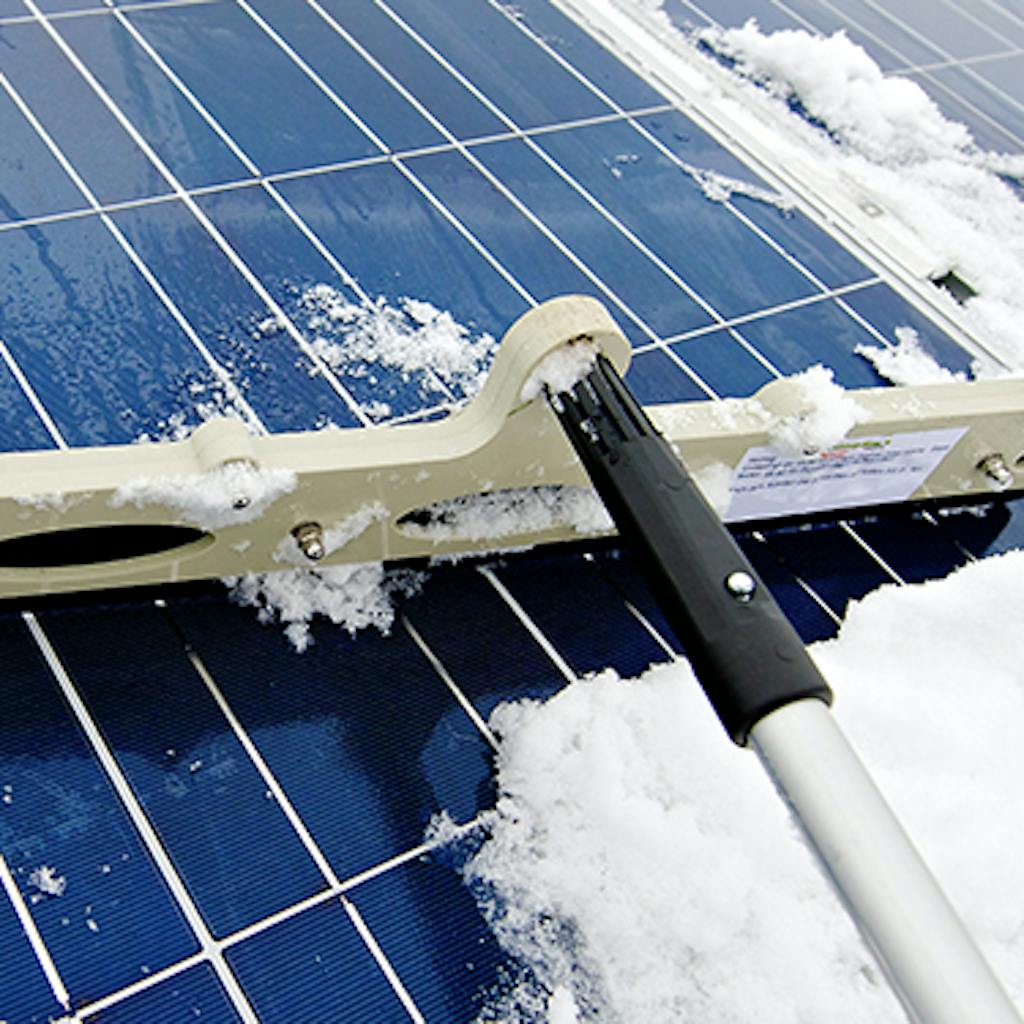Your cart is currently empty!

Solar Panel Maintenance and Cleaning: What to Expect
A solar system is an investment, and as such, you’ll want to make the most of it. In addition to solar panel monitoring, regular solar panel cleaning and maintenance will make sure your system functions optimally for many years to come. Luckily, solar panel maintenance and cleaning aren’t too complicated, and most DIY solar users are…
A solar system is an investment, and as such, you’ll want to make the most of it. In addition to solar panel monitoring, regular solar panel cleaning and maintenance will make sure your system functions optimally for many years to come.
Luckily, solar panel maintenance and cleaning aren’t too complicated, and most DIY solar users are capable of managing upkeep on their own. It often includes simple checks of the wiring system, electrical, and batteries, in addition to a simple cleaning like removing debris or snow.
There are a few best practices we recommend following when cleaning and checking up on your system, and this guide will help familiarize you with them.
Solar Panel Cleaning
How often your panels need to be cleaned will typically depend on the location and climate of your installation. For residential systems, regular rainfall may be enough to keep panels clean and free of debris.
However, you may find that manual cleaning is necessary if there is a buildup of tree debris, dust, or bird droppings atop your panels. In this situation, simply rinse the panels with a hose, and if necessary, wipe them down using a small amount of dish soap and a soft sponge or cloth. Be sure not to use anything abrasive, as it can damage the solar panels.
If you are unsure of how to safely and properly clean your solar panels, contact us at Resscott LTD. for advice on the best way to care for your system.
Cleaning Snow Off Panels
If you live in a climate with lots of snow, more than likely you’ll need to brush excess snow off your panels to maintain their efficiency.
In this case, a soft-bristled broom or brush works best. Abrasive materials can scratch the glass on the face of your panels.
Roof-mounted panels in snowy climates can also add another layer of risk to the cleaning process. The buildup of ice combined with the slope of your room makes for quite a hazardous environment and may be best left for professional cleaning.
We strongly recommend opting for a ground mount system if you’re installing in an area that sees a lot of snow. This makes the panels much easier to access and safer to clean.

If you absolutely must clean snow off of a roof-mounted array, please take the necessary precautions by wearing heavy-grip shoes and a secure harness.
Solar Panel Maintenance
Apart from cleaning your panels, other parts of your system can benefit from regular check-ups and maintenance to keep everything in good condition. Most of these tasks can be DIY, though requirements may vary depending on individual systems.
Wiring & Electrical
At least once a year, we recommend inspecting electrical conduit, fittings, ground conductors, and any other visible electrical hardware for security and signs of damage.
Inspect PV wiring/cables to make sure they are not touching the roof, or otherwise unsecured. All PV wire should be securely fastened to the racking or panel frame using wire clips.
Racking
Racking refers to how solar panels are mounted and what hardware is effectively used. They can be roof-mounted or ground-mounted, and there are also less common mounts including tilt legs and pole mounts. Before you choose, it’s important to consider the type of structure, weather, cost, and other factors.
For simple cleaning, inspect racking for signs of damage, debris accumulation, or loose hardware at least once per year.
This is easier to do for a ground mount system, but if you have a roof-mounted array, checking the racking in places where you can (with proper fall protection employed, like a harness) may go a long way in keeping your system running optimally.
Batteries
If your system has a battery bank, you’ll want to set up a regular battery maintenance schedule to maintain their lifespan and efficiency.
Battery maintenance needs differ based on type; lithium-ion batteries require little to no maintenance after initial setup, whereas others need regular upkeep to stay in good condition.
The following are some general tips for battery maintenance:
- Program voltage set points, so the battery bank charges at the proper voltage.
- Refill flooded lead-acid batteries with distilled water every 2-4 weeks, or as needed.
- Regularly check battery state of charge. Apply an equalization charge to flooded batteries every 90 days. (Do not equalize sealed lead-acid or lithium batteries.)
- Terminal connections and cables should be cleaned to prevent corrosion.


Leave a Reply